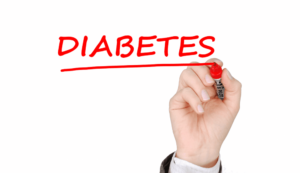Menopause brings on a whole new phase of life, and it’s not all bad. You stop having to deal with monthly periods, and you don’t need to think about birth control anymore. But most women also experience a series of uncomfortable symptoms, including hot flashes, vaginal atrophy and dryness, lower libido, mood swings, problems sleeping through the night, and weight gain.
It seems unfair to add osteoporosis to that list, but the truth is that there’s a link between this change in life and your risk for bone density loss. Here to explain the connection is our team of board-certified endocrinologists at Ally Endocrinology in Troy, Michigan .
Renowned for their expert treatment of advanced metabolic and endocrinological diseases using the latest technology, our providers are the go-to source for osteoporosis care throughout the greater Troy area. Although men get osteoporosis, too, women get it much more often, especially as they get older.
Whether you’re approaching menopause, are post-menopausal, or are a young woman hoping to prevent osteoporosis, here’s what you need to know.
A closer look at osteoporosis
Your bones are hard and stiff, which may give the impression that they’re stronger than they really are. But inside your bones, there’s a network of growing tissue that resembles a sponge. The countless tiny holes constantly change size and shape as your bone cells renew and grow over the years.
Your bones are the repository for calcium and other minerals, so when your body needs some calcium, it draws from the store in your bones and rebuilds more, keeping those sponge-like holes tight and small. However, around age 30, you begin to lose more bone than you gain, the holes get bigger, and the problem progresses each year beyond that.
By your late 30s, the process speeds up, and your bones lose mass. This is normal progression, but if the loss happens at a rapid rate, you end up with osteoporosis.
The connection between menopause and osteoporosis
Many of our patients ask us if menopause causes osteoporosis, and the answer is: yes and no. The exact cause of osteoporosis is unknown, but the risk factors are very clear, and menopause is one of them.
Several factors contribute to osteoporosis and put you at a higher risk, including:
- A poor diet deficient in calcium and vitamin D
- Genetics
- Ethnicity: Caucasian, African American, Asian American, and Latina women are more at risk
- Body weight and composition: smaller, thinner people are at greater risk
- Medical conditions: overactive thyroid, celiac disease, blood diseases — to name a few
- Menopause
We place menopause on this list because it’s the time in your life when your ovary function declines. That means they slow down their production of estradiol, a hormone that normally protects against bone loss.
Not every menopausal woman gets osteoporosis, but it certainly increases your chances. Two significant factors are the level of your bone density at its peak prior to the decline and how quickly your body loses bone density. Your maximum density and rate of loss play a big role in whether you get menopause-related osteoporosis.
What can be done for osteoporosis?
If you’re a teen or a young woman, the best thing you can do to prevent osteoporosis is eat a healthy diet ensuring you get plenty of calcium and vitamin D, get lots of exercise, and don’t smoke.
If you already have osteoporosis, we can help. Your treatment depends on the condition of your bones and the severity of your symptoms, and it may include:
- Bone-building drugs
- Hormone therapy
- Monoclonal antibodies
- Bisphosphonates
- RANK ligand inhibitors
- Prolia® injections
- Reclast® infusions
Our team thoroughly assesses the health of your bones and the rate of density loss to develop the best treatment plan for you. With targeted treatments, we can stop the bone-removing cells from ever reaching your healthy bone tissue and help you prevent the development of bone disease.
To find out the state of your bones, come in for a DEXA scan — that’s a special type of bone X-ray — to determine whether you can benefit from osteoporosis treatments.
To schedule an appointment with the team at Ally Endocrinology , call any of our three locations in Troy, or request a consultation online today.



